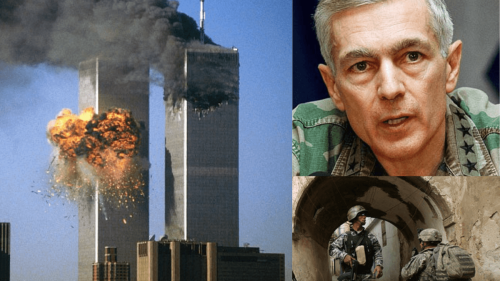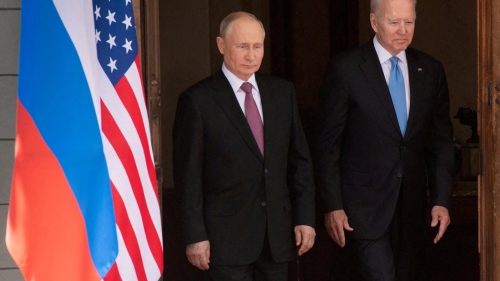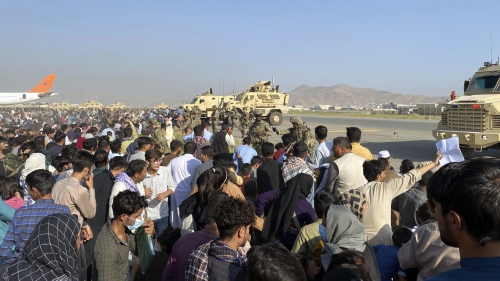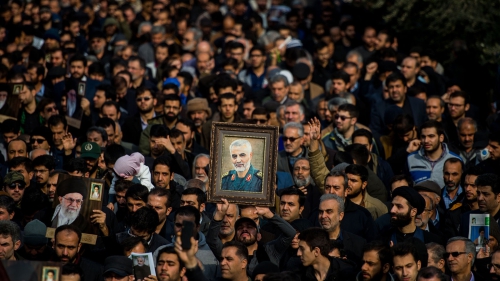Three Kings - War is Hell ... and Gold!
In the most dramatic scene of the new motion picture, "Three Kings," -- a cynical drama about the Gulf War -- captured U.S. Marine Corps Sergeant Troy Barlow is interrogated by an Iraqi Republican Guard officer. The following conversation between the two takes place:
Officer: "Why did the U.S. bomb Iraq?"
Troy: "Because it invaded Kuwait."
Officer: "Why should the U.S. care if Iraq invades Kuwait?"
Troy: "Because it's wrong to invade another country. It's bad for the stability of the region."
[Officer jams a CD holder in Troy's mouth then orders a black gooey liquid (oil) to be poured in his mouth.]
[Troy screams.]
Officer screams back: "This is your f***ing stability!"
Three Kings is a film set in post Gulf War Iraq, shortly after the cease-fire. It tells the story of four American Marines who come across a "treasure map" leading to gold bullion stolen by Saddam Hussein's forces from Kuwait. Fresh from defeating the Iraqis, the cynical Marines set out fearlessly for Karbala, a southern city holy to Shiite Muslims. They find the gold and then load it onto a big van with the full cooperation of (gasp) the Iraqi army. As odd as this might seem, the viewer is asked to believe that a preoccupation with putting down the Shiite rebellion offsets the Iraqi soldiers' interest in the gold.
Assuming the viewer goes along with this premise -- although common sense would dictate that the large contingent of the Iraqi Republican Guard could simply arrest the four Americans and turn them in to their commander to be court marshaled for theft - the stage is set for the main plot twist. The Marines, led by a cool-headed captain named Archie Gates (George Clooney), are faced with a moral dilemma: do they take the gold and leave or stay and save helpless civilians from a certain death at the hands of the Iraqi soldiers?
The answer comes after they witness an innocent woman being shot at point blank range in the head. A swift fight ensues, ingeniously filmed in slow motion to accent the preciousness of every human life involved. The Americans, of course, emerge victorious, as is typical of American soldiers in American films.
What follows is as predictable as desert heat: The Marines race against time and seemingly insurmountable odds to deliver the civilians safely to the Iranian border.
But what is most interesting about "Three Kings" is neither its predictability nor unrealistic plot. Rather it provides a fresh look at the Gulf War and the humanity of the Iraqis who are both victims and victimizers. It also avoids common Hollywood stereotypes, which tend to cast Muslims as terrorists inherently antagonistic to the West.
Perhaps the lengthy scene between the Iraqi officer and his American captive, Sergeant Troy Barlow, indicates that the filmmakers went out of their way to portray the Iraqi soldier as an ordinary human caught in an extraordinary situation with dreadful consequences.
The Iraqi officer explains to his captor, "I only joined Saddam's army to make a good living for my family. Now I can't get out." He goes on to tell Troy how he lost his only son when a bomb fell on his house and then asks the painful question, "How would you feel if I blow (up) your daughter?" A swift cut shows an imaginary shot in which Troy's wife is seen hugging her baby daughter while running away from a horrific explosion. The vivid image brings the pain home for Barlow. He then looks up and answers the officer painfully, "Worse than death."
In essence, the message of "Three Kings" is that the Gulf War was worse than death and that neither Bush nor Saddam had any business sending their soldiers to die for Kuwait.

















